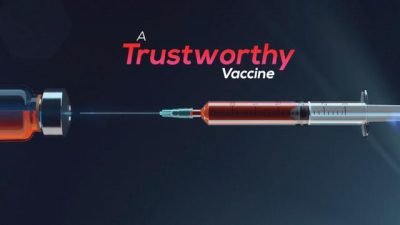Is it possible that pharmaceutical companies have interests which they defend by any means, violating the rules of “healthy economic competition”, their impartial relationship with the medical profession, and even human health itself? The pharmaceutical industry, as an integral part of Western-type social organization, is it just another capitalist enterprise or a humanitarian organization? Or is it a combination of the two, trying to balance between profit and its humanitarian mission?
The fact that we need to rediscover the role played by pharmaceutical companies in the management of health (from the definition and severity of diseases to the approval and promotion of the corresponding drugs) seems, at the very least, anachronistic. One would assume that in recent decades, with the proven criminal record of pharmaceutical companies laid out in public view, society has already acquired a solid understanding of their true nature. The enormous list of unethical drug promotions, their—at times fatal—side effects, the bribery of doctors, and the coerced distribution of these drugs in developing countries should, at the very least, raise doubts in any logically thinking person about the salvation they claim to offer. Yet, in the era of new totalitarianism, it appears we must speak (again) of the obvious.
An illustrative example of this role is the story of the pharmaceutical company Pfizer. Founded in 1849 in New York, it has a long criminal record, part of which you can see in the video above. Following the approval of the vaccine by this specific company for covid-19 by the English government, some of its past “exploits” are presented, and the reasonable and self-evident question is posed: “Can we trust them?”
Regarding the company’s contribution during the COVID period, some key points:
In May 2020, Pfizer began testing four different variants of a coronavirus vaccine and planned to expand the trials to thousands of volunteer patients by September 2020. It partnered with BioNTech, a German pharmaceutical company, and administered the experimental vaccine BNT162 to the first human participants in the USA in early May. Based on the results, Pfizer said it “will be able to deliver millions of doses by October” and expects to produce hundreds of millions of doses in 2021.
In July 2020, Pfizer and BioNTech announced that two of the four mRNA vaccine candidates had been approved by the U.S. Food and Drug Administration (FDA). It should be reminded that for this particular type of vaccine, it is a completely new technology and concept for how an immune response is “triggered” in an organism, which has never been tested in humans before, neither for its effectiveness nor for its potential side effects. Under the pressure (and/or bias) of COVID-19, this is now about to happen. The company began its Phase 3 trial in the last week of July 2020 on 30,000 people and was scheduled to receive $1.95 billion for 100 million doses of the vaccine from the USA. This agreement set the price of the two doses at $39, and the company stated that it would not lower prices for other countries until the pandemic is over. Pfizer’s CEO stated that private-sector companies producing vaccines should make a profit.
In September 2020, Pfizer and BioNTech announced that they had concluded talks with the European Commission to supply 200 million initial doses of the vaccine to the EU, with the option to provide an additional 100 million doses later.
In October 2020, it was reported that Pfizer would begin testing the vaccine on a broader range of individuals, including children up to 12 years of age. This would be the first coronavirus vaccine trial to include children in the US.
Finally, it should be noted that Pfizer has been active in our region since 1960, and among other things, last year it was announced—and began this year in Thessaloniki—the implementation of the first of six international digital technology centers for the analysis of large health data sets, which will be used for its research.

